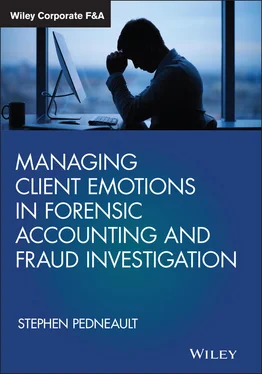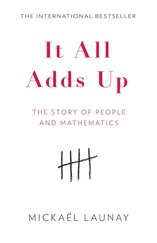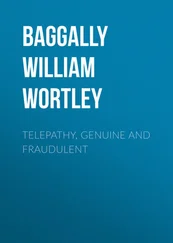The woman had contacted her relatives and, during their discussions, indicated that she thought the attorney was stealing from her. The family was angry at the news but lacked local resources to oversee the attorney's activities. The woman's relatives contacted local counsel, who in turn retained our services.
One of the aspects of this case involved the woman's physical estate, upon which there was a primary residence and a guest house. During the period that the attorney was the fiduciary, long before our involvement, one of the woman's nephews had started looking into the finances handled by the attorney. The more the nephew investigated, the more he discovered things that made no sense. The nephew visited the house and saw how the attorney and his wife controlled nearly every aspect of his aunt's life. It appeared to him that his aunt was solely dependent on the attorney and his wife and lacked the freedom to do anything for herself, including going to the market and the bank. The more the nephew learned what was happening, the more he grew suspicious.
Those involved in this case believe that at some point the attorney became aware of the nephew's observations and decided to meet with the nephew. To this day, neither the attorney nor the nephew will confirm the meeting or discuss what transpired during it, but afterwards, the attorney transferred the house at the back of the estate into the nephew's name. Once the house was transferred, the nephew moved in and made the house his primary residence. After the transfer, the nephew never gave us any further details, nor did he cooperate with the investigation.
Laws require that fiduciaries, such as conservators, obtain the court's permission prior to selling or transferring significant assets, such as real estate. In this case, the attorney neither requested nor provided such permission. This was a significant factor in the beneficiaries seeking to have the house transfer reversed and the house placed back into the estate.
The land record reflected a transfer form signed by the aunt, with an “X” as her signature. Counsel for the beneficiaries requested copies of the woman's medical records and also interviewed in‐home care staff who were present during the period when the transfer took place. The medical records showed that the woman suffered from dementia and other significant health issues and had been primarily bedridden at the time of the transfer. The caregivers stated that the woman would not have known what she was signing at the time of the transfer. These additional factors gave the beneficiaries hope of recovering the house back into the estate.
The fiduciary attorney had stated through his counsel that the aunt told him she wanted her nephew to have the house and told the attorney to transfer the house into the nephew's name. The attorney said he had witnessed the woman sign the transfer form and that she had signed her name with an “X,” as she commonly did around that time period.
We discovered no other documents signed by the aunt, let alone any signed with an “X,” since the attorney had signed nearly all transactions using his name and the phrase “as her conservator.” This was yet another significant piece of information.
One particular beneficiary, angry that the attorney had exploited the woman, brought an action in court to recover the house. Given the information surrounding the transfer, it appeared a court would see what happened, determine it was a fraudulent transfer, and revert the house back to the estate.
Months passed after the lawsuit was initiated, and the beneficiaries grew more and more frustrated at the delay caused by the process, especially knowing that the nephew lived at the house day in and day out without any repercussions.
Finally, the court date arrived. We met at the courthouse and discussed the trial strategy with counsel in the hallway. The beneficiary's attorney brought witnesses and evidence to show the judge what had happened with the transfer. Things seemed to be going well for the beneficiary's case. Next, opposing counsel put the nephew on the witness stand. The nephew told the court about how much his aunt wanted him to have the house and live on the property. He described his life before he moved into the house and noted how his life had significantly improved after receiving it.
Although we thought his story was irrelevant, opposing counsel's strategy was to have the judge hear it. The case ended with final arguments, and we then waited for a decision.
There is no other way to describe our reactions to the decision than “blown away.” Even though the law was in the beneficiary's favor, as were the medical records and testimony of the caregivers, the judge ruled to allow the nephew to keep the house. I observed the shell‐shocked and disbelieving look on the beneficiary's face, and I knew it would transition from disbelief to anger, so I quickly escorted him out of court and to his car. As we walked, he asked me what had just happened. I told him I had no idea. We waited by our cars for his attorney, and when the attorney arrived, I asked him to explain the ruling. The law had been on our side, the facts had been on our side, and the witnesses had been on our side. I said it appeared pretty clear to me that what the attorney had done constituted buying off the nephew to stop him from looking into his aunt's financial affairs. The beneficiary asked his attorney how the judge could rule in favor of the nephew keeping the house.
The attorney responded: “The judge made an emotional decision today, not a legal one.”
I wondered, “What does that even mean? That judges can disregard the laws and make ‘emotional’ decisions?” I asked the attorney how this was possible.
The attorney replied, “It happens sometimes.”
In the meantime, the beneficiary was growing more and more angry. He verbalized his anger, citing the amount of time and money that he had spent getting to today's trial date, only for the judge to make an emotional decision. Suffice to say, he was upset. I calmed him down enough for him to drive and waited until he and his attorney had left in their cars.
I too was shell‐shocked and angry at what had just happened. It had shattered my belief that judges who hold the highest position within the legal system would reach emotional decisions.
The good news in this matter: Subsequent actions taken by the beneficiaries resulted in the recovery of the house from the nephew as well as the recovery of $4.8 million in diverted funds. However, this recovery did not take place until the beneficiaries had spent even more money and the fiduciary attorney had been prosecuted and convicted.
This case illustrates how a fraud examiner can experience emotions similar to those of his clients while working on an engagement. While it's important to not become too emotionally involved in client cases, I know that, once retained, I become very intimate with the details of a case, often knowing them better than anyone else. I also know (or at least choose to continue to believe) that if everything works as it is supposed to, then the system will prevail in favor of the truth, and the right decision or outcome will be achieved. Sadly, there is no guaranteed outcome when it comes to court and legal proceedings, even with the best evidence to support a client's position. Fraud examiners are human, and it's hard not to feel the same emotional reactions as clients – especially when you've invested so much effort into determining what actually happened – only to have the legal process reach a decision that is contrary to the evidence. Unfortunately, that does happen sometimes.
To make matters worse, after receiving an unfavorable decision or outcome, we must close the file and send the client a final invoice. We know we are just concluding our involvement and that the client expects to receive a final invoice, but we also know how the client may react when they receive it (along with their attorney's bill). It's only human for the client to be not only angry at losing a case but also angry at having to send additional funds to pay for outstanding costs. In some cases, you will receive full payment from the client, but in others you can expect to do some level of bargaining and compromise in order to get the final payment.
Читать дальше












